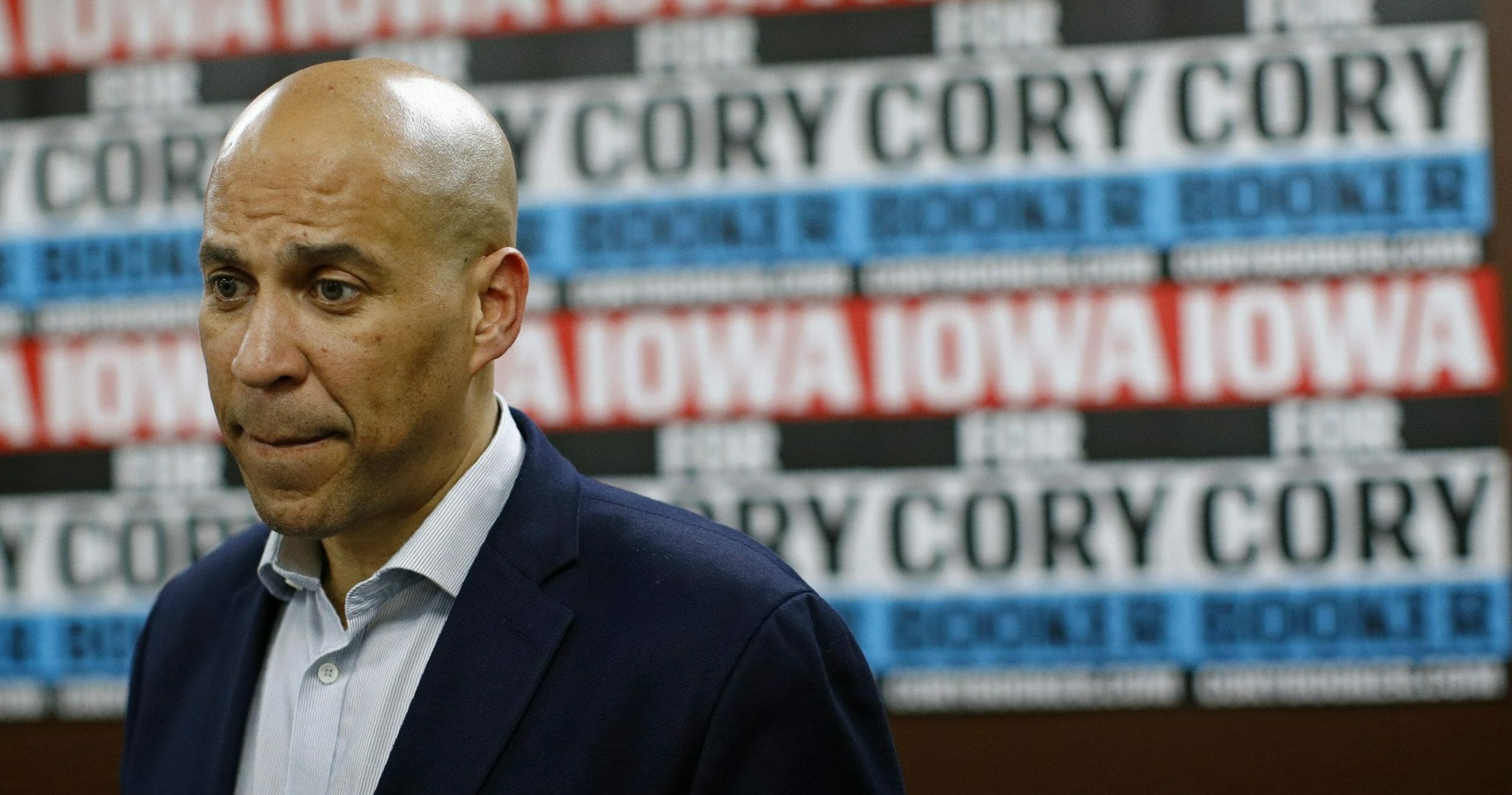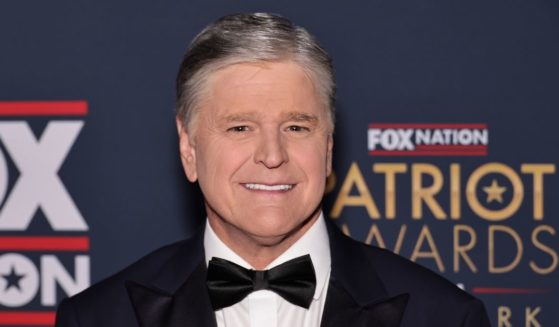
Cory Booker Drops Out of 2020 Race, Says Impeachment Is Partially To Blame
Democrat Cory Booker dropped out of the presidential race Monday, ending a campaign whose message of “unity and love” failed to resonate in a political era marked by partisan chaos.
Since launching his campaign last February, Booker, a U.S. senator from New Jersey, struggled to raise the money required to support a White House bid.
He was at the back of the pack in most surveys and failed to meet the polling requirements needed to participate in Tuesday’s debate.
Booker also missed last month’s debate and exits the race polling in low single digits in the early primary states and nationwide.
In an email to supporters, Booker said that he “got into this race to win” and that his failure to make the debates prevented him from raising the money required for victory.
“Our campaign has reached the point where we need more money to scale up and continue building a campaign that can win — money we don’t have, and money that is harder to raise because I won’t be on the next debate stage and because the urgent business of impeachment will rightly be keeping me in Washington,” he said.
Booker had warned that the looming impeachment trial of President Donald Trump would deal a “big, big blow” to his campaign by pulling him away from Iowa in the final weeks before the Feb. 3 Iowa caucuses.
He hinted at the challenges facing his campaign last week in an interview on The Associated Press’ “Ground Game” podcast.
“If we can’t raise more money in this final stretch, we won’t be able to do the things that other campaigns with more money can do to show presence,” he said.
In his email to supporters, Booker pledged to do “everything in my power to elect the eventual Democratic nominee for president,” though his campaign says he has no immediate plans to endorse a candidate in the primary.
His background often brought comparisons to President Barack Obama, and he’d been discussed as a potential presidential contender since his arrival in the Senate in 2013.
An early focus on building out a campaign operation in Iowa and South Carolina may have hampered his campaign in the long run, as the resources he spent early on staff there left him working with a tight budget in the later stages of the primary, when many of his opponents were going on air with television ads.
That meant that even later in the campaign, after he had collected some of the top endorsements in Iowa and visited South Carolina almost more than any other candidate, a significant portion of the electorate in both states either said they were unfamiliar with his campaign or viewed him unfavorably.
On the stump, Booker emphasized his Midwestern connections — often referencing the nearly 80 family members he has still living in Iowa when he campaigned there — and delivered an exhortation to voters to use “radical love” to overcome what he considered Trump’s hate.
But he rarely drew a contrast with his opponents on the trail, even when asked directly, and even some of Booker’s supporters worried his message on Trump wasn’t sharp enough to go up against the Republican president.
Booker struggled to land on a message that would resonate with voters.
He’s long been seen as a progressive Democrat in the Senate, pushing for criminal justice reform and marijuana legalization.
And on the campaign trail, he proposed establishing a $1,000 savings account for every child born in the U.S. “to help close the racial wealth gap.”
He was among the first candidates to release a gun control plan. He also released an early criminal justice reform plan that focused heavily on addressing sentencing disparities for drug crimes.
But he also sought to frame himself as an uplifting, unifying figure who emphasized his bipartisan work record.
That didn’t land in a Democratic primary that has often rewarded candidates who promised voters they were tough-minded fighters who could take on Trump.
Booker’s seat is up for a vote this year, and he will run for reelection to the Senate. A handful of candidates have launched campaigns for the seat.
Booker’s exit from the presidential race further narrows the field — once at two dozen candidates — to 12 candidates.
The Western Journal has reviewed this Associated Press story and may have altered it prior to publication to ensure that it meets our editorial standards.
Truth and Accuracy
We are committed to truth and accuracy in all of our journalism. Read our editorial standards.
Advertise with The Western Journal and reach millions of highly engaged readers, while supporting our work. Advertise Today.












